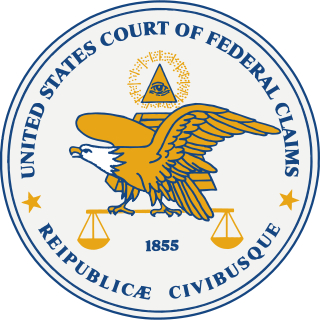
Breach of contract is a legal cause of action and a type of civil wrong, in which a binding agreement or bargained-for exchange is not honored by one or more of the parties to the contract by non-performance or interference with the other party's performance. Breach occurs when a party to a contract fails to fulfill its obligation(s), whether partially or wholly, as described in the contract, or communicates an intent to fail the obligation or otherwise appears not to be able to perform its obligation under the contract. Where there is breach of contract, the resulting damages have to be paid to the aggrieved party by the party breaching the contract.

In contract law, force majeure is a common clause in contracts which essentially frees both parties from liability or obligation when an extraordinary event or circumstance beyond the control of the parties, such as a war, strike, riot, crime, epidemic, or sudden legal change prevents one or both parties from fulfilling their obligations under the contract. Force majeure often includes events described as an act of God, though such events remain legally distinct from the clause itself. In practice, most force majeure clauses do not entirely excuse a party's non-performance but suspend it for the duration of the force majeure.

Ultra vires is a Latin phrase used in law to describe an act that requires legal authority but is done without it. Its opposite, an act done under proper authority, is intra vires. Acts that are intra vires may equivalently be termed "valid", and those that are ultra vires termed "invalid".
Consideration is an English common law concept within the law of contract, and is a necessity for simple contracts. The concept of consideration has been adopted by other common law jurisdictions, including the US.

Unconscionability is a doctrine in contract law that describes terms that are so extremely unjust, or overwhelmingly one-sided in favor of the party who has the superior bargaining power, that they are contrary to good conscience. Typically, an unconscionable contract is held to be unenforceable because no reasonable or informed person would otherwise agree to it. The perpetrator of the conduct is not allowed to benefit, because the consideration offered is lacking, or is so obviously inadequate, that to enforce the contract would be unfair to the party seeking to escape the contract.

Offer and acceptance are generally recognised as essential requirements for the formation of a contract, and analysis of their operation is a traditional approach in contract law. This classical approach to contract formation has been modified by developments in the law of estoppel, misleading conduct, misrepresentation, unjust enrichment, and power of acceptance.

R v Ron Engineering and Construction (Eastern) Ltd, of 1981 is the leading Supreme Court of Canada decision on the law of tendering for contracts. The case concerned the issue of whether the acceptance of a call for tenders for a construction job could constitute a binding contract. The Court held that indeed in many cases the submission of an offer in response to a call for tenders constitutes a contract separate from the eventual contract for the construction. With the release of the decision, the tendering process practiced in Canada was fundamentally changed.

Jacob & Youngs, Inc. v. Kent, 230 N.Y. 239 (1921) is an American contract law case of the New York Court of Appeals with a majority opinion by Judge Benjamin N. Cardozo. The case addresses several contract principles including applying the doctrine of substantial performance in preventing forfeiture and determining the appropriate remedy following a partial or defective performance.

Photo Production Ltd v Securicor Transport Ltd[1980] UKHL 2 is an English contract law case decided by the House of Lords on construction of a contract and the doctrine of fundamental breach.
A Himalaya clause is a contractual provision expressed to be for the benefit of a third party who is not a party to the contract. Although theoretically applicable to any form of contract, most of the jurisprudence relating to Himalaya clauses relate to maritime matters, and exclusion clauses in bills of lading for the benefit of employees, crew, and agents, stevedores in particular.

Canadian contract law is composed of two parallel systems: a common law framework outside Québec and a civil law framework within Québec. Outside Québec, Canadian contract law is derived from English contract law, though it has developed distinctly since Canadian Confederation in 1867. While Québecois contract law was originally derived from that which existed in France at the time of Québec's annexation into the British Empire, it was overhauled and codified first in the Civil Code of Lower Canada and later in the current Civil Code of Quebec, which codifies most elements of contract law as part of its provisions on the broader law of obligations. Individual common law provinces have codified certain contractual rules in a Sale of Goods Act, resembling equivalent statutes elsewhere in the Commonwealth. As most aspects of contract law in Canada are the subject of provincial jurisdiction under the Canadian Constitution, contract law may differ even between the country's common law provinces and territories. Conversely; as the law regarding bills of exchange and promissory notes, trade and commerce, maritime law, and banking among other related areas is governed by federal law under Section 91 of the Constitution Act, 1867; aspects of contract law pertaining to these topics are harmonised between Québec and the common law provinces.

English contract law is the body of law that regulates legally binding agreements in England and Wales. With its roots in the lex mercatoria and the activism of the judiciary during the industrial revolution, it shares a heritage with countries across the Commonwealth, from membership in the European Union, continuing membership in Unidroit, and to a lesser extent the United States. Any agreement that is enforceable in court is a contract. A contract is a voluntary obligation, contrasting to the duty to not violate others rights in tort or unjust enrichment. English law places a high value on ensuring people have truly consented to the deals that bind them in court, so long as they comply with statutory and human rights.
A contract is an agreement that specifies certain legally enforceable rights and obligations pertaining to two or more parties. A contract typically involves the transfer of goods, services, money, or a promise to transfer any of those at a future date, and the activities and intentions of the parties entering into a contract may be referred to as contracting. In the event of a breach of contract, the injured party may seek judicial remedies such as damages or equitable remedies such as specific performance or rescission. A binding agreement between actors in international law is known as a treaty.

Bolton v Mahadeva [1972] 2 All ER 1322 is an English contract law case concerning substantial performance of an obligation.

Hoenig v Isaacs [1952] EWCA Civ 6 is an English contract law case concerning substantial performance of an entire obligation.
A changes clause, in government contracting, is a required clause in United States government construction contracts.

G.L. Christian and Associates v. United States is a 1963 United States Federal Acquisition Regulation (FAR) court case which has become known as the Christian Doctrine. The case held that standard clauses established by regulations may be considered as being in every Federal contract. Because the FAR is the law, and government contractors are presumed to be familiar with the FAR, a mandatory clause that expresses a significant or deeply ingrained strand of public procurement policy will be incorporated into a Government contract by operation of law, even if the parties intentionally omitted it.
Financial law is the law and regulation of the commercial banking, capital markets, insurance, derivatives and investment management sectors. Understanding financial law is crucial to appreciating the creation and formation of banking and financial regulation, as well as the legal framework for finance generally. Financial law forms a substantial portion of commercial law, and notably a substantial proportion of the global economy, and legal billables are dependent on sound and clear legal policy pertaining to financial transactions. Therefore financial law as the law for financial industries involves public and private law matters. Understanding the legal implications of transactions and structures such as an indemnity, or overdraft is crucial to appreciating their effect in financial transactions. This is the core of financial law. Thus, financial law draws a narrower distinction than commercial or corporate law by focusing primarily on financial transactions, the financial market, and its participants; for example, the sale of goods may be part of commercial law but is not financial law. Financial law may be understood as being formed of three overarching methods, or pillars of law formation and categorised into five transaction silos which form the various financial positions prevalent in finance.

Bhasin v Hrynew, 2014 SCC 71 is a leading Canadian contract law case, concerning good faith as a basic organizing principle in contractual relations in Canada's common law jurisdictions.
A termination for convenience clause, or "T for C" clause, enables a party to a contract to bring the contract to an end without the need to establish that the other party is in default, for example because the client party's needs have changed, or in order to arrange for another party to complete the contract.








